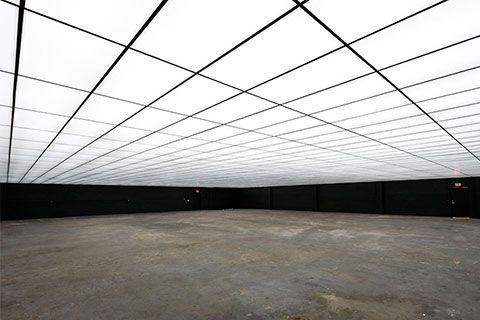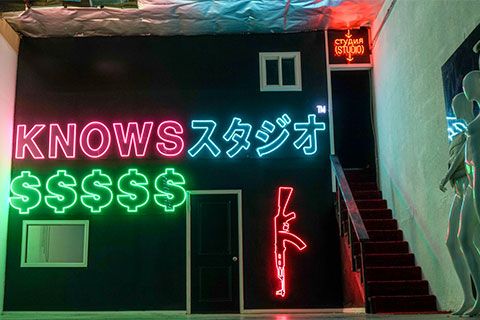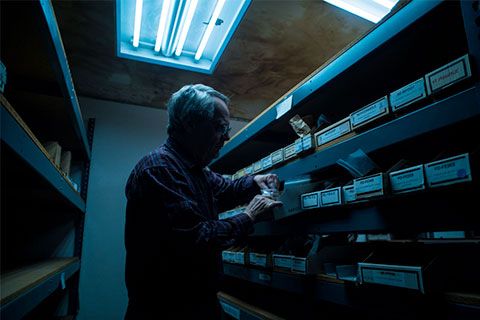Industry Interviews: Running an LA Location Agency
We’re excited to announce the launch of a new recurring interview series as part of the Giggster blog. Every week, we’re going to sit down and talk with a production industry insider and get their thoughts on how they got to where they are, and what makes them successful at what they do. For the initial article, we had a chance to interview Chris Duer who owns and operates one of Los Angeles’ most successful filming location agencies, Legend Locations.
Reagan Cook: Hey there Chris, thanks for taking the time to do this interview. I guess the first question we should get out of the way is: what is a location agent? And what does your typical day look like?
Chris Duer: Thanks, and I’m happy to be here. Basically, a location agent is the middle-man between property owners and production clients. It’s similar to a talent agent, but instead of helping actors find gigs, we help property owners connect with production companies looking for places to film. For owners – we make it easier for them to host production shoots and offer their properties to production companies looking for locations. We send a professional photographer out to shoot the location, market the property, negotiate rates, manage correspondence, and handle all the paperwork. For clients – they turn to us looking for a specific locale, for example, they might ask for a property with an infinity pool, an abandoned warehouse, outdoor restaurants, churches, etc. We then go through our database and send locations that fit their specifications. If they end up deciding to use one of our locations, we take a percentage of the location fee based on industry standards.
Rent a location for your next film or photo shoot project on Giggster – A better way to book locations.






RC: How long have you been a location agent for?
CD: Since 2005, so I guess that’s 13 years.
RC: Throughout your time as an agent, how have you seen the industry change?
CD: I think the most important change was the internet. As a Photo Producer in early 2000’s, (even though you could check out locations online) the best way to review locations was to pick up the phone and request a file pull from Location Agencies. Then to view those files we had to arrange for a messenger to pick up physical location books from the Agents. As digital cameras, screen resolutions, and internet speed advanced eventually the way Location Agencies were able to share locations changed to being online.
RC: What would you tell someone who’s trying to start their own location agency? What are some first steps? How did you establish connections to acquire your first few locations?
CD: I was in production for about 6 years prior to becoming a full-time agent, so my first locations were those that I had booked in the past. When I purchased Legend Locations, I was able to inherit an already well-established location library.
RC: You can’t physically be at multiple locations at once, so how do you ensure that your locations won’t get destroyed and that the shoot runs smoothly?
CD: Great question. I have a trusted network of Site Representatives that we put on every job to supervise the shoot and act as a liaison between owner and producer. They are the first ones on set and the last one to leave. After the shoot wraps, they report back any overages. Additional steps that are taken include floor protection, production insurance, and security deposits. Regardless of how many precautions we can take, owners need to understand that accidents are going to happen when you rent out your property.
RC: What is a quality you appreciate in a client?
CD: Communication – I have some great relationships with Producers and Location Managers, and it’s mostly due to this very simple characteristic. I would rather you be upfront with me about what locations you’ve already seen -everyone’s time is valuable, don’t let me send you locations you’re already looking at. Tell me your location budget from the start – if a client is continually booking locations with me and with decent budgets and then one day your budget is extremely low, I’ll do what I can to get you into that location you want even though it’s out of your price range -which sometimes means taking a cut on the commission.
RC: What do you think about the future of location sharing platforms like Giggster?
CD: The location industry is slowly going through another change and I see the Giggster platform as the future. However, Location Agents are not going anywhere anytime soon. Giggster is great for those lower impact, lower budget shoots, but an experienced Location Agents is still an important part of the booking process for the higher level jobs.
RC: What are the characteristics someone needs to succeed as a location agent?
CD: I would say the things that stand out to me are negotiating skills, patience, conscientiousness and the ability to build and foster close trusting relationships.

